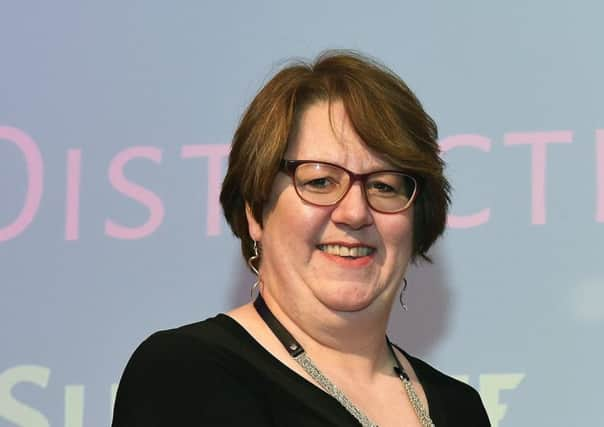Sue Jefferson: Circular vision will see nothing going to waste


Circular Malton is the product of an ambitious vision by the Local Enterprise Partnership for York, North Yorkshire and East Riding, which wants to see our region thrive as a competitive, carbon-neutral circular economy that benefits businesses, society and the environment. When successful, it will see North Yorkshire recognised as a leader in the delivery of circular economy excellence, with all the advantages that will attract.
Circular Malton is a pilot project to determine how to engage a range of different stakeholders – business, authorities, the public – and see them collaborate to create a circular economy. In a very short time, the signs are already encouraging.
Advertisement
Hide AdAdvertisement
Hide AdCurrent economic models rely on Take Make Dispose, which we know is not sustainable and in fact creates much unnecessary waste. The circular economy decouples economic activity and resources, enabling materials to stay in use and within the economy. An obvious benefit turns waste streams into profit streams as one organisation’s waste becomes another’s input material.
One very exciting idea will see Malton test and optimise the concept of a community anaerobic digester. Using the food waste that already exists in the town as Yorkshire’s food capital, along with bio waste from schools, farms, racing stables and food manufacturers, the intent is to first collect then convert this in order to supply energy, heating and fuel transport for the town itself.
Funding bids have already been submitted to support this. Most encouraging is that every market town can follow Malton’s path. It began with a diverse group of people with a very clear purpose, who collaborated to create awareness, wide engagement and turn passive behaviour into action. As well as zero food waste, these include very visible and accessible vehicle electric charging points as well as water drinking fountains and reusable bottles for every school child, combining with curriculum support.
The intent is to create and highlight visible initiatives that get people talking – and enable everyone to play their part. Local businesses are already leading the way: Wold Top Brewery makes beer from waste bread, Kemps General Stores uses green energy and sells a range of biodegradable alternative to plastic products; Malton Cookery School turns any food waste into soup or stock; Cosy Cottage Soaps, a recent new business to Malton, makes personal care products without plastic, and Ryedale Free Fridge offers surplus fresh food of all types to the whole community, redistributing one tonne in their first 10 weeks.
Advertisement
Hide AdAdvertisement
Hide AdSuccess breeds success. Malton Food Festival grows in popularity every year and recently won Minster FM’s Event of the Year Award. It has also reduced its waste from 20 tonnes to four.
Such has been the interest and support, from independent retailers, to the local district council and residents, that Circular Malton has already expanded to encompass Circular Norton. Everyone sees the obvious win win created by a circular economy. So why has it proved such a long time coming? It requires knowledge, agility and collaboration between businesses, local authorities and the local public – something that traditionally is not done.
The next step is for Circular Malton to secure funding to realise these mind-set changing initiatives. The team has been fully involved in the LEP’s November’s Circular Yorkshire month, gathering business case studies with the intent to create awareness and understanding of the circular economy.
This is a powerful opportunity for every part of our region. By acting at pace, Yorkshire can become recognised as the circular centre of excellence. I’d urge folk to investigate this, find out how the circular economy can best advantage you and contact the LEP to help you make it happen.